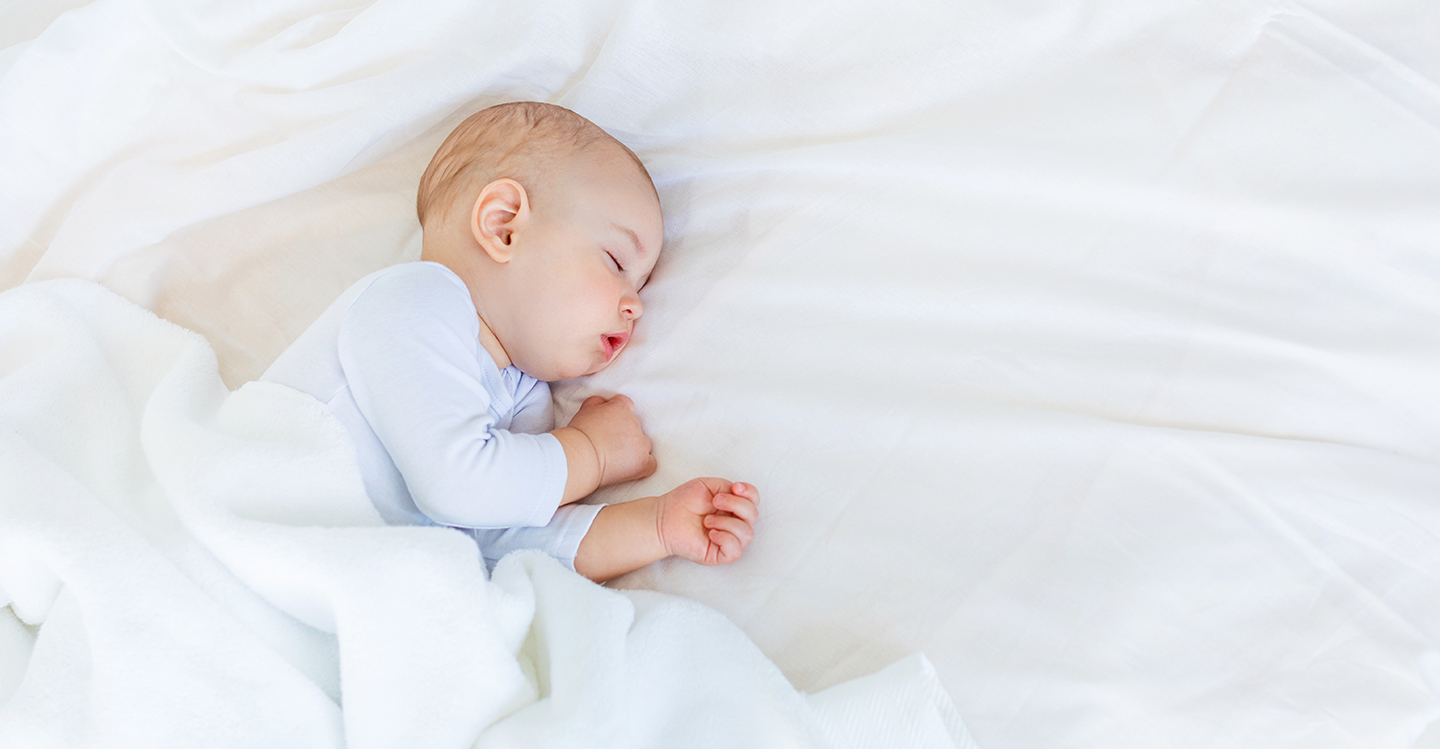Your baby’s sleep patterns will change dramatically over the first 12 months of their life. It’s important to understand how and why some of these changes are occurring and to manage your expectations and your baby accordingly.
In the first few months of a baby’s life they may sleep from between two to four hours before waking for a feed. This pattern continues until between three and six months when your baby’s sleeps can stretch out up to six hours – a welcome change for tired parents!
Some parents enjoy using routines and rhythms to help their little ones settle before sleep time. Whether it's a bath, story, massage or song (or all of them!), some babies like the predictability of routines before bed. You can start your routines or rhythms any time, even from birth, but sleep can be frequent and erratic in those first few months, so don't worry if it's tricky to work in all the elements you want right away.
How much your baby sleeps
Babies’ sleep patterns change for a variety of reasons: their stomachs grow so they need fewer feeds; their brains develop; and they become more aware of separation from their caregivers.
Over the course of your baby’s first 12 months, their sleep patterns will change accordingly:
- Newborns – young babies can sleep from anywhere between eight and 18 hours a day. They will usually settle after a feed, but will wake at any time – day or night – that they are hungry, thirsty, wet, or just want some love and comfort.
- Three to six months – total sleep will gradually reduce, but the majority of this may start to occur at night with shorter sleeps throughout the day.
- Six to twelve months – older babies will start to sleep mostly during the night, with total hours spent sleeping coming down even more - some babies take around 12 hours per day, but there can be lots of variation and every baby is unique and sleep needs can change from day to day. Teething discomfort around this age can make it hard for babies to settle or stay asleep.



